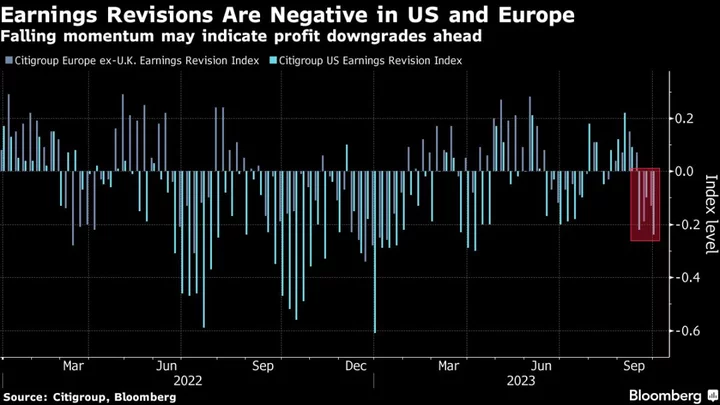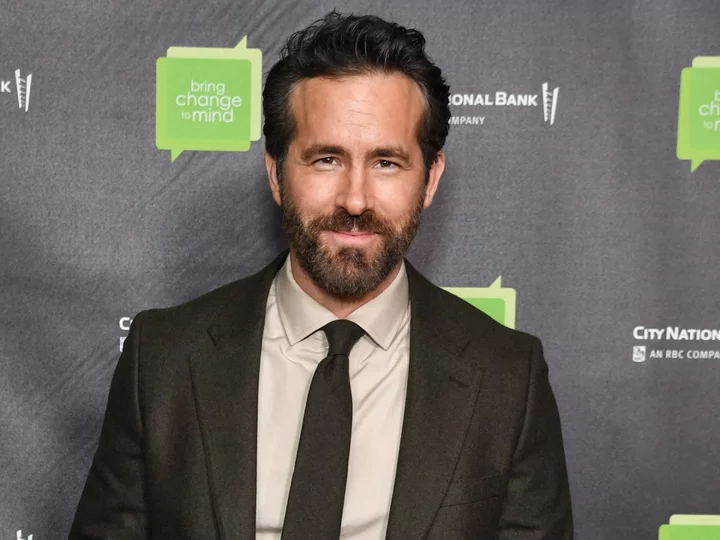
Sports culture is ‘intimidating’ and putting people off working out, study finds
Intimidating sports culture is putting millions off working out – as many are feeling alienated by the exercise industry. A poll of 2,000 adults who don’t exercise found 68 per cent feel too embarrassed to go to the gym because they don’t fit the mould of the “typical” gym goer. More than three-quarters (78 per cent) don’t find sports adverts motivating and 33 per cent say adverts actually put them off working out. However, 55 per cent would be more likely to exercise if they saw everyday people in sports adverts. And 20 per cent would be more inspired to do something active if there were more realistic expectations set by the industry. A further 29 per cent say sports brands aren’t relatable to them, and a quarter think exercise culture is intimidating. While 49 per cent wish they had more confidence to exercise. The research was commissioned by ASICS as part of its ‘New Personal Best’ campaign, which is calling out performance-obsessed exercise culture in partnership with mental health charity Mind. Gary Raucher, European vice president for the sportswear brand, said: “The sports industry has been telling us for years that the only thing that matters is a faster time, a longer distance, a higher score, and more reps. “Although it’s aimed at motivating people, our research shows it’s having the reverse effect and instead creates an intimidating culture that’s putting people off exercise – something we’re committed to change.” As part of the research, survey respondents were shown a series of marketing images from sportswear and athletic brands and asked to comment on how the pictures made them feel. Just over one in 10 (12 per cent) said the images made them feel ‘inferior’, 13 per cent felt intimidated and for seven per cent, the images even made them feel depressed. It was found 16 per cent typically come across these types of images on social media, with 42 per cent admitting seeing boastful exercise posts makes them feel like a failure – even before they’ve started exercising. Hayley Jarvis, head of physical activity at Mind, added: “For people who don’t exercise, taking that first step can be daunting, especially if they’re also experiencing a mental health problem. “When you add the pressure of performance so often seen in sports marketing or on social media, for some it can feel impossible to get started as they don’t feel like they’re ‘good enough’. “Getting active can play a vital role in helping us stay and live well with mental health problems.” The survey, which was conducted via OnePoll.com, also found 23 per cent of non-exercisers feel too embarrassed to start now, and nearly one in five (18 per cent) worry people would judge them as they are too unfit. Over three quarters (77 per cent) admitted they are aware of the mental health benefits of exercise. But despite 61 per cent saying they have either personally experienced a mental health problem or know someone who has, it is still not motivation enough to get them moving. Mental health activist and TV personality Dr Alex George, who is supporting the ASICS campaign, said: “As someone who is passionate about the benefits of exercise on mental health, it’s upsetting but unsurprising that people feel excluded and alienated by the sports industry. “I too have felt intimidated and insecure after comparing my performance and results to others. “People need to know that regardless of the type of exercise they do, or the times or distances they achieve, any movement benefits mental health and is something that should be celebrated.” The ‘New Personal Best’ campaign features everyday people and is encouraging them to share their own ‘personal best’ images on social media using the hashtag #NewPersonalBest on World Mental Health Day, 10th October. One of which is Tom Durnin, whose inspirational story caught the sports brand’s attention when he finished in last place at the London Marathon 2023. He said: “For me, it was all about crossing that finish line no matter how long it took me. I run purely because it makes me feel good, I don’t worry about my time or being the slowest. “I never thought I’d ever be the face of a sports campaign but I’m honoured to be partnering with ASICS to encourage more people to move for their mental health. “If my story can inspire at least one person to take the first step that’s all I could ask for.” Read More Brits reveal advice they would give their younger selves - including investing in property Girls in UK have much lower confidence than male peers, study finds Average person completes 90 online tasks a day Israel-Hamas conflict: How to talk to teenagers about distressing news stories How to get rid of bedbugs: Signs and symptoms amid threat of UK invasion How to support someone coming out in their 30s and beyond
2023-10-11 16:59

Stock Market Can’t Ignore Impact of Rates on Earnings This Season
Stock markets that have refused to buckle under the highest yields since 2007 face a new test. Third-quarter
2023-10-11 15:59

How to support someone coming out in their 30s and beyond
Coming out can be hard at any age, but by the time you’re well into adulthood it may feel terrifying, and be completely life-changing. Many people who come out in their thirties and onwards may have wanted to for a long time but not felt safe enough to do so. As October 11 marks National Coming Out Day, it’s important to reflect on how, if and when people can share their authentic selves. “I wasn’t raised in a time when it felt safe to express attraction to women,” says author and creative mentor Fiona Fletcher Reid, who came out last year at the age of 35. “I wasn’t sure about my sexuality until I had psychosexual therapy and was able to explore all the layers of internalised homophobia and repression that I had accumulated over my 35 years,” she says. So, how you can support someone who is going through it? Don’t assume everyone is the same Not every person’s coming out looks the same, and some LGBTQ+ experiences are not universal. “Coming out is a personal experience and because it is often physically and emotionally dangerous to be openly queer, lots of people never feel able to be open,” says Fletcher Reid, now 36. “Some people might feel free to come out once they have ended a particular relationship, or after meeting people who they feel safe around. “For others, like me, it’s that we don’t consciously acknowledge our sexuality until we are a lot older and have the confidence to work through the emotional implications and real-life consequences that come with that,” The writer, from Glasgow, was going through a divorce at the time with a man she’d been with since the age of 17. “During therapy, I talked a lot about the pain I was experiencing during intercourse as well as my general anxiety around sex. It wasn’t until I’d built up a trusting relationship with my therapist that I felt able to discuss the fact that I thought I might be gay and I did not expect that to come up, so I was just as surprised as everyone else when I came out.” Don’t question their authenticity Validate what the person who has come out is saying. “Don’t say, ‘Are you sure?’ because you can rest assured that the person coming out to you has thought long and hard about this,” says Fletcher Reid. “Casting self-doubt on someone when they have opened up a vulnerable part of themselves to you is hurtful.” Don’t question them about their sex life It’s no one else’s business. “Please don’t ask about whether they have been intimate with anyone, or any other sort of suggestion that they need to ‘prove’ their sexuality to you,” she stresses. Consider what they feel and accept that it is a big deal They are probably feeling “a mix of emotions, including excited, happy, empowered and scared for their safety”, says Fletcher Reid. “Sadly coming out can still cause huge ruptures in relationships so be aware that this is a huge moment for them and comes with real consequences. “Dismissing their experience as ‘not a big deal’ because you think it’s ‘normal to be gay’ now is a dangerous and false narrative.” It may sound simple, but just listening and supporting them is vital. “Be there to listen and try to celebrate all the new things that they are exploring as they come out, whether that’s dating, meeting new people or finding ways to experiment with their identity through fashion,” says Fletcher Reid. “Repeat often that you love and care for them and that you accept this evolution of them, that you are happy to see them happy.” Suggest they find community “Encourage them to talk to other people who have been through similar experiences if you can,” she says. “As much as friends and family want to understand what they are going through, it is far more validating to talk to someone else who has come out later in life and understands the emotional intricacies of the experience. “They can also hopefully show them that there are good times ahead.” Thank them for sharing with you “It is a privilege that someone trusts you with coming out, especially later in life. Tell them that you are honoured to have been trusted with this information, and reassure them that you will keep it private until they are ready to tell other people,” Fletcher Reid suggests. “The best reactions that I had from people were seeing their joy that I had discovered this important part of myself, and that had a huge impact on my ability to feel hopeful amidst the pain caused by my divorce. “Allowing them to feel conflicted and guilty and offering reassurance that they have the right to be themselves will make them feel so much happier.” Read More Israel-Hamas conflict: How to talk to teenagers about distressing news stories Autumn décor ideas for a seasonal refresh Why you shouldn’t tidy your garden too much in autumn World Mental Health Day: 5 ways to beat anxiety and change your life Alternative veg to grow for next season How to spot if your child is struggling with their mental health – and what to do next
2023-10-11 13:49

The Best Prime Day Gaming Hardware Deals
There are many pains that come with being a gamer, but one of the worst
2023-10-11 10:27

Harvard Ignites Backlash Over Delayed Response to Hamas Attack on Israel
The letter was signed by more than 30 student groups at Harvard after the world woke to images
2023-10-11 06:25

Ryan Reynolds opens up about how his mental health spins ‘out of control’
Ryan Reynolds has spoken candidly about his mental health, revealing that his mind can “spin out of control” sometimes. The actor, 46, spoke candidly about his mental health challenges during an interview with Page Six on 9 October, while attending non-profit organisation Bring Change to Mind’s annual Revels & Revelations Gala. Speaking to the outlet, he revealed that he’s found himself spinning “out of control” at times, before noting that he’s “not always great” at maintaining his mental equilibrium. However, Reynolds shared some routines that he follows when struggling with his mental health. “I certainly have my own little rituals and those kinds of things that help me stay grounded and keep my mind from spinning out of control,” he said. “Sometimes I’m really good at it, sometimes I’m not.” The Deadpool star noted that when he becomes aware of those “out of control” moments, he meditates in order to “take the time” for himself to regroup. He also shared how he’s become aware of his own lifestyle traits that he wants to work on amid his mental health struggles. “I tend to overbook myself when I’m spiraling that way,” he said. “I’m sort of aware of that stuff and I manage it as well as you can.” This isn’t the first time that Reynolds has spoken out about his mental health. He first opened up about his struggles with anxiety in February 2022 during an appearance on CBS’s Sunday Morning. “I’ve had anxiety my whole life really and you know, I feel like I have two parts of my personality. That one takes over when that happens,” he said. He also recalled how his feelings of anxiety would intensify before appearances on talk shows, such as Late Night With David Letterman. “I remember I’d be standing backstage before the curtain would open,” he said. “And I would think to myself: ‘I’m gonna die. I’m literally gonna die here. The curtain’s gonna open and I’m just gonna be a symphony of vomit.’ Just, like, something horrible’s gonna happen!” The Green Lantern star then noted that “as soon as that curtain opens” before he goes on stage, “this little guy takes over” that ultimately helps him manage his anxiety. “And he’s like: ‘I got this. You’re cool.’ I feel, like, my heart rate drop and my breathing calm, and I just sort of go out and I’m this different person. And I leave that interview going: ‘God, I’d love to be that guy!’” he said. During his appearance at Bring Change to Mind’s event on 11 October, Reynolds also discussed conversations that he and his wife, Blake Lively, have with their children about mental health. “I think it’s more about talking to them about everything,” he told People at the gala. “It’s genuine when I say I take a huge interest in their days and how things are going.” Reynolds and Lively, who’ve been married since 2012, share three daughters: James, eight, Inez, seven, and Betty, four. In February, they welcomed their fourth child, whose name hasn’t been publicly revealed. The Free Guy star also explained that the “best time” of his day is when he walks his children to and from school. When discussing some of the challenges that children often face, Reynolds praised his daughters for the self-awareness they’ve developed. “I think as parents, we are so much better equipped to handle the rigours of childhood through our kids now than when I was a kid. It’s just totally different now,” he said. “People are much more self-aware. And that’s the thing we sort of hang our hat on the most is self-awareness with our kids. Not be happy, not be anything, just be self-aware and welcome everything in.” Read More Ryan Reynolds describes experience attending Travis Kelce’s game with Taylor Swift From double dates to parenthood: A timeline of Blake Lively and Ryan Reynolds’ relationship NFL defends Taylor Swift coverage during games as Travis Kelce says they’re ‘overdoing it’ Ryan Reynolds describes experience attending Travis Kelce’s game with Taylor Swift Pokemon’s Detective Pikachu Returns and more top games of the week Travis Kelce reveals the two people who helped him woo Taylor Swift
2023-10-11 05:20

SXSW Sydney Festival Boosts Harbor City’s Post-Pandemic Revival
Nicole Kidman, Baz Luhrmann and Chance the Rapper will join business leaders from Canva, Atlassian and Tesla at
2023-10-11 04:27

LVMH Sales Growth Slows as Global Luxury Demand Cools
LVMH’s sales growth softened in the third quarter as shoppers reined in spending on high-end Cognac and costly
2023-10-11 00:51

Israel-Hamas conflict: How to talk to teenagers about distressing news stories
With all the access teenagers today have to the internet and social media, they may see more distressing news stories than even their parents. Palestinian militant group Hamas – deemed a terrorist group by the UK Government – invaded Israel on Saturday from Gaza, with rocket attacks by air as well as military in boats. Since then, Israel has sealed the Hamas-ruled Gaza Strip off from food, fuel, medicine and other supplies, while launching retaliatory air strikes on the territory, which is home to 2.3 million people. The most recent numbers suggest 900 people have been killed in Israel, 700 in the Gaza territory and the West Bank, and many hostages have been taken. Hamas has pledged to kill captured Israeli hostages if attacks target civilians in Gaza. The conflict has sparked protests by pro-Palastine and pro-Israel groups in the UK and prompted political division on social media. Teenagers are likely to be exposed to a lot of the news, internet discussion and perhaps distressing images of conflict. So how should parents approach this? Talk about it at home Dr Jeri Tikare, clinical psychologist at Kooth, a digital mental health platform, believes parents should be as truthful as they can with their teenagers. “This means that it is important for us to not to hide things away from them. It is better for them to hear it from us (their people of safety) as opposed to reading it or hearing it from others,” he says. “Also bearing in mind the curious nature of the mind. It is inevitable that for things that they do not understand, they might research and look for answers. “It can be helpful if they get their information from a reliable source which can feel contained and reassuring. But share information at a level that is developmentally right and just enough to help the young person feel contained and safe.” Check yourself As the parent, learn the basics of what is going in the conflict yourself from reputable sources so you can have balanced, informed conversations with your child. “It can also be useful to be aware of our own reactions as parents or primary caregivers,” he says. “One of the ways young people learn and develop is via observing and then modelling adult behaviour. Hence, they can pick up anxieties or worries displayed by parents.” Validate and normalise expressing emotion If your teen is particularly affected by distressing news stories about war and conflict, Tikare encourages parents to give their teenagers the opportunity to express how they are feeling in different ways – such as writing, drawing, stories, songs, and things that feel helpful for the young person. “Some find a feelings box helpful,” he adds. “It might also be helpful to introduce them to some simple relaxation techniques such as taking three deep, slow breaths, breathing in for a count of three and out for three.” Be there for them Giving your teenager the space, time and encouragement to open up about how they feel on any subject – world news or otherwise – is key. “I know that life can be hard, busy and sometimes young people are aware of this and might not want to disturb you,” Tikare says. “Therefore, it might be helpful to make a conscious effort to let them know that you are mindful of how difficult it can be and reassure them that you are available to talk about things. “Giving them extra love and attention at this time can be helpful, especially at difficult times like this.” Discuss social media Tikare acknowledges that television, social media and other platforms “can be very distressing and exacerbating” for teenagers. But you may not be able to prise your child away from posting on their social media accounts altogether. “It would depend on the motivation behind posting and where they are posting,” Tikare says. “Posting about the feelings experienced around the conflict in a supportive and possibly moderated space, with people sharing similar feelings associated with the conflict, can help normalise the experience and leave them feeling less alone. “On the other hand, it could also expose them to content and comments that could potentially trigger distress.” So be sure to make them aware of the content they may come across online. Read More Autumn décor ideas for a seasonal refresh Why you shouldn’t tidy your garden too much in autumn World Mental Health Day: 5 ways to beat anxiety and change your life Alternative veg to grow for next season How to spot if your child is struggling with their mental health – and what to do next Does your pillowcase make a difference to your skin and hair health?
2023-10-10 20:51

World Mental Health Day: 5 ways to beat anxiety and change your life
Anxiety is something that touches most of us, to a greater or lesser extent. Although it may just be a temporary blip for some people, for many, anxiety is a diagnosed condition that blights their lives. Indeed, Mental Health UK estimates more than one in 10 people in the UK are living with an anxiety disorder – that’s over eight million of us. And World Mental Health Day (October 10) is a chance to address the topic, agrees clinical psychologist Dr Kirren Schnack – author of the new book Ten Times Calmer: Beat Anxiety And Change Your Life. “It’s a reminder that mental wellbeing is just as important as physical health,” she says, pointing out that anxiety disorders are among the most widespread mental health issues globally. “Clinically, I’ve seen more and more people coming in with anxiety issue. The pandemic has played a significant role in this surge, introducing unprecedented levels of uncertainty, fear, and social isolation. At the same time, global economic instability and job losses have intensified stress and anxiety for many,” Schnack adds. “The widespread use of digital technology and social media has exposed people to a constant stream of alarming news and comparison-driven content that also feeds anxiety.” Schnack explains that anxiety disorders include generalised anxiety disorder (GAD), which causes chronic worry and hinders decision-making; health anxiety, where there’s an excessive preoccupation with diseases and illness; panic disorder, which is marked by sudden overwhelming panic attacks; and social anxiety, which leads to avoidance, isolation and low confidence. “They can blight daily life through physical symptoms, cognitive impairment, social isolation, disrupted routines, and emotional distress,” she says. Schnack suggests these five ways to combat anxiety problems and find calm… 1. Calm your stressed nervous system Anxiety places significant strain on the nervous system, Schnack explains, but there are simple daily practices that can help alleviate this stress. One is focusing on breathing, extending your exhale longer than your inhale. To do this, Schnack says you need to inhale gently through your nose, pause for a few seconds, then exhale slowly and deeply, ensuring an extended exhale. “A longer exhale helps by increasing the activation of the body’s parasympathetic nervous system, which counteracts stress hormones, lowers heart rate, and reduces overall physiological stress,” she says. She suggests around three to five of the breaths are repeated on multiple occasions throughout the day, and stresses that consistency is key. “Recognise that if anxiety has been a longstanding presence, it will take time and patience to restore your nervous system’s sense of safety and stability.” 2. Address anxious thoughts Schnack explains that anxiety often generates anxious thoughts that can seem like undeniable facts that are often dwelled on and reacted to, thus intensifying anxiety. “To break free from this cycle, it’s crucial to consciously confront and process these anxious thoughts,” she says. To do this, write a simple record, noting the date of your anxious prediction, describing what it was, and then, after a specified time like a day or two, return to what you’ve written and confirm whether the prediction was accurate by marking it as ‘yes’ or ‘no’. When the prediction doesn’t materialise, make a note of the actual outcome. Revisit the record, especially during anxious moments, and count the yes or no entries to reflect on your progress. “This practice trains your mind to adopt a broader, less anxious perspective,” explains Schnack. 3. Stop over-focusing on anxiety“People struggling with anxiety often find it challenging to shift their attention away from anxiety symptoms, leading to a persistent preoccupation that can worsen their problems,” says Schnack, who explains that this preoccupation can lead to excessive self-analysis, fixation on physical sensations or repetitive thoughts, and being hypervigilant. To shift your attention away from overwhelming anxiety, Schnack suggests trying this exercise: choose a colour, such as blue, and actively seek out blue objects in your surroundings. Name them out loud, and count them as you move around, possibly describing the item too. “Strive to maintain this focus for a few minutes, switching to different colours if necessary. Again, consistency is crucial, so make an effort to practice this regularly whenever anxiety hijacks your attention,” she advises. 4. Learn to tolerate uncertainty Recognising and addressing uncertainty is vital when dealing with anxiety, Schnack stresses. “You can’t resolve every uncertainty in life – the key lies in enhancing your ability to tolerate uncertainty so you can reduce your anxiety,” she explains. “Being more accepting of the fact that things may not always go as planned or that the future is uncertain can be incredibly liberating.” To help build resilience against uncertainty, Schnack advises people to take a moment to slow down and not immediately engage in reactive behaviour demanded by uncertainty, such as checking, Googling or avoiding things. Instead, she says, note your feelings, observing what uncertainty is doing to your mind and body, and write out an affirmation such as: ‘I’m feeling anxious because I’m uncertain about… My typical response to uncertainty is to engage in… behaviour. I recognise this only worsens my anxiety. My goal is to distance myself from anxiety rather than gravitate towards it. I can sit with the feeling of uncertainty for as long as I can, and build on this time until I get better and better at it.’ 5. Gradually face your fearsConfronting your fears is an effective way to overcome them, observes Schnack, although this can often feel overwhelming. “When you confront your fears, you’re essentially acting in opposition to your anxious thoughts and what anxiety is telling you. This process weakens anxiety’s grip on you, and when the actual outcomes don’t align with your anxious predictions, your mind can naturally adjust its thinking.” She suggests starting with small steps and gradually building up. So, for social anxiety, gradually start by saying a simple sentence or asking a basic closed question, and gradually building up from there. For health anxiety, gradually reduce and eliminate excessive online researching about illness and diseases, starting with small-time durations and then building on that. For panic disorder, gradually spend more time in places you typically avoid, starting with short durations like 30 seconds, then a few minutes, and gradually keep increasing the time. “Remember to repeatedly face your fears to make meaningful progress – it’s not just a one time thing,” adds Schnack. Ten Times Calmer: Beat Anxiety And Change Your Life by Dr Kirren Schnack is published by Bluebird, priced £16.99. Available now. Read More Alternative veg to grow for next season How to spot if your child is struggling with their mental health – and what to do next Does your pillowcase make a difference to your skin and hair health? Sarah Jessica Parker channels Carrie Bradshaw on the red carpet in mismatched shoes Does your pillowcase make a difference to your skin and hair health? As transphobic hate crimes rise by 11% in a year, how to be a better ally
2023-10-10 14:20

Hollywood Screenwriters Overwhelmingly Approve New Contract
Screenwriters overwhelmingly approved their new contract with the Hollywood studios, officially ending a strike that began five months
2023-10-10 06:24

A Fractured Israel Unites Around a Singular Goal: Crush the Enemy
The normally bustling streets of Tel Aviv are empty, schools shut, flights canceled and a major gas field
2023-10-10 05:54
